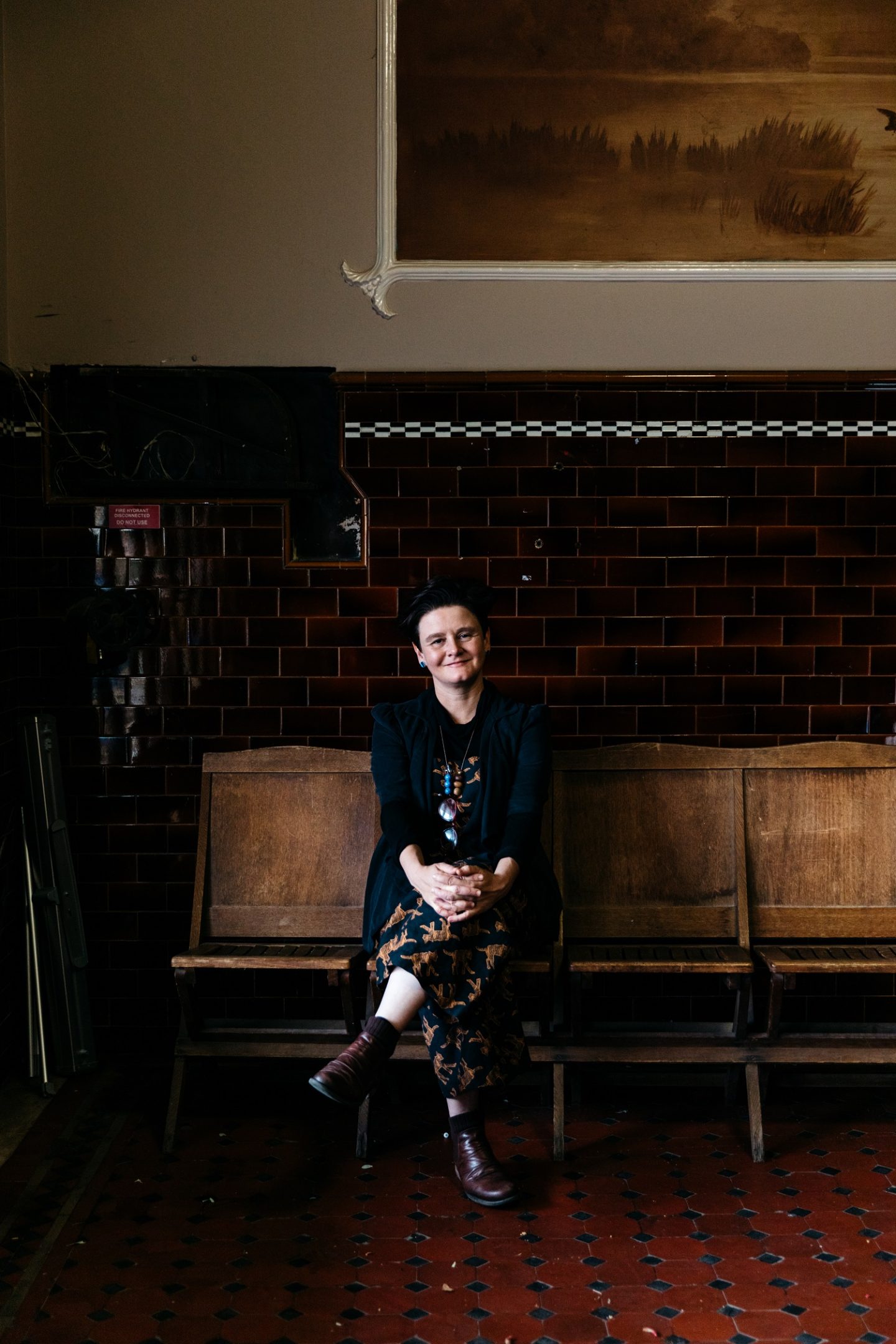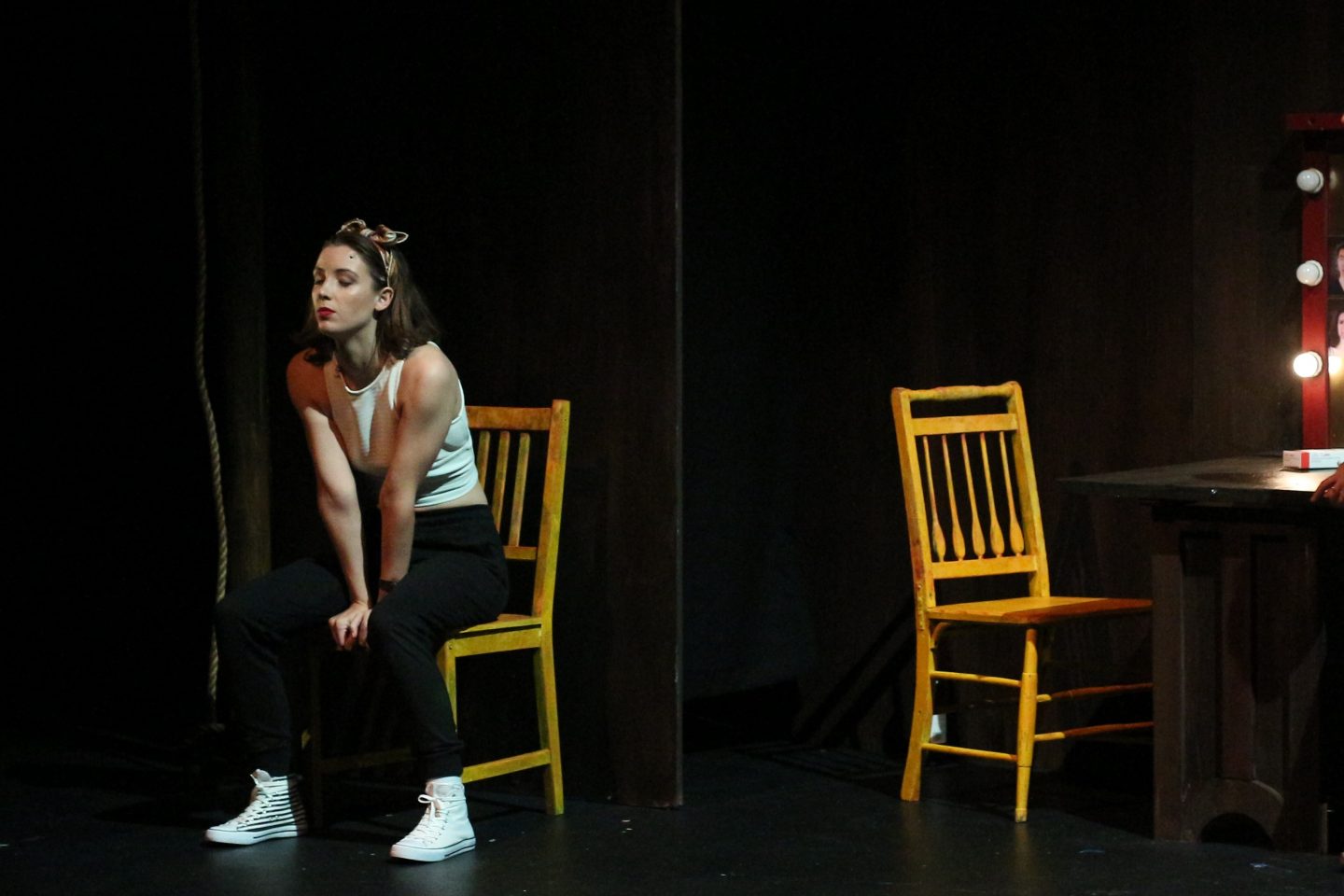“It was quite a shock,” Emma Webb tells The Adelaide Review of receiving around three times the usual volume of applications for Adhocracy in 2020. “We were alarmed, and we really had to pivot how we were delivering Adhocracy this year.”
The closures and restrictions of March made months’ worth of work and opportunities for artists around the country vanish overnight. More recently, Victoria’s second wave has dashed early hopes of a smooth, swift, nationally synchronised return to some semblance of normalcy. As a result, Webb says, the fortunate few organisations that have been able to press on find themselves tasked with responding to a continent of time-rich, opportunity-starved artists and creatives.
“Talking to colleagues, it’s similar to a lot of callouts that have happened this year around the country,” she says. “On the one hand, for organisations like Vitalstatistix, it’s exciting to receive so many applications – and they were of a really exceptional, high quality. It’s exciting to see how artists are responding to this time we’re in locally, nationally and globally. But it was also alarming to us, because it really showed the level of, essentially, what the Australia Council has previously called ‘unfunded excellence’. The quality of what Australian artists are doing, compared to the lack of opportunities that are available to develop new work in Australia.”
As applications were closing in May, before Victoria’s COVID-19 numbers climbed, Webb and her team were still figuring out what Adhocracy 2020 could look like. Might artists and curators from around the country be able to descend on Port Adelaide for four days in September after all?
“But the clincher was the number of applications we received – this pivot would enable us to actually support more projects.”
 Vitalstatistix director Emma Webb
Vitalstatistix director Emma Webb
“For many artists, like those residing in Melbourne, that means they’re working from lockdown, at home, collaborating across Zoom.”
Emma Webb
28 projects and artist teams have since undertaken what Webb describes as four-day “mini-residencies” wherever they are around the country. “For many artists, like those residing in Melbourne, that means they’re working from lockdown, at home, collaborating across Zoom. Some artists are able to do more physically-together residencies depending on what state they’re in – we’ve been able to offer periods of time [at Waterside Workers Hall] over the last month for South Australian artists to undertake their mini-residencies.”
Webb and the Vitals team have sought to balance the nationwide spirit of the event, the digital world which so many artists and audiences have turned to in 2020, and the sense of place, intimacy and community that has been so important to past Adhocracy programs.
Each residency will produce a “digital outcome”, published in batches of seven on the Adhocracy website every Friday throughout September. Additionally, a series of “live and local” Friday night events at the Waterside Workers Hall will see interstate artists dial in to participate in keynotes, conversations and work-in-progress performances.
“That spirit of Adhocracy will still be part of how we’re delivering it this year; for instance, we’ve asked artists to think about their digital outcomes not as work-in-progress showings but as a creative response to their process and ideas.”
The 28 projects encompass a wide variety of mediums and themes from artists new and familiar to regular Adhocracy audiences, that speak to themes of health, environment and justice that are particularly pressing in 2020 – but have often been a feature of Vitalstatistix programming anyway.
“Nature Is Healing is a really fantastic project by a duo called Too Rude – Emma McManus and Maria White,” Webb says of one interstate project that uses the gweela (Australia native brush turkey) and “its fight against gentrification in urban areas” of Sydney to explore the intersection of the natural and urban worlds. “They’ve been participants at Adhocracy a number of times in the past. They make work that is really political, but also its very funny and researched; they turn public policy conversations into very sharp and amusing performance-lecture style work.”
 Jamila Main
Jamila Main
Also debuting at Waterside this Friday will be How Long Can This Last, a work-in-progress durational performance from local playwright and performer Jamila Main, whose play Butterfly Kicks had its 2020 Rumpus season postponed due to COVID concerns. “Jamila is a leader in South Australia looking at works that explore both disability and queerness, and we’re really excited to be able to have an opportunity for Jamila to do a work in progress performance on Friday night, testing out those ideas.
“There’s some really personal, political explorations in the program, which I think always comes through in Adhocracy,” Webb reflects. “But I think when people are isolating and reflecting and potentially working alone, that is certainly something we felt was important to support.”
Of course, a one month-long program by an independent South Australian arts org can’t hope to solve the existential challenges that still face artists, workers and organisations around the country, as existing Australia Council funding remains stretched and the efficacy of the federal government’s recently opened RISE support package remains to be seen.
But despite the setbacks, Webb remains cautiously optimistic about the future – even as she joins the masses of arts orgs around the country sending off grant applications to secure a piece of the nationally scarce funding required to make it happen.
“We’ve been spending the time this year developing a whole range of new projects and thinking about what 2021 will look like for Vitals,” she says. “I’m really excited about our plans for next year – and glad we’ve had the capacity and time this year to really think about what we want to go into next year.”
4 – 25 September
Adhocracy 2020
Walter is a writer and editor living on Kaurna Country.
Related Article
How COVID-19 and years of neglect have created a perfect storm for the arts in Australia
Get the latest from The Adelaide Review in your inbox
Get the latest from The Adelaide Review in your inbox